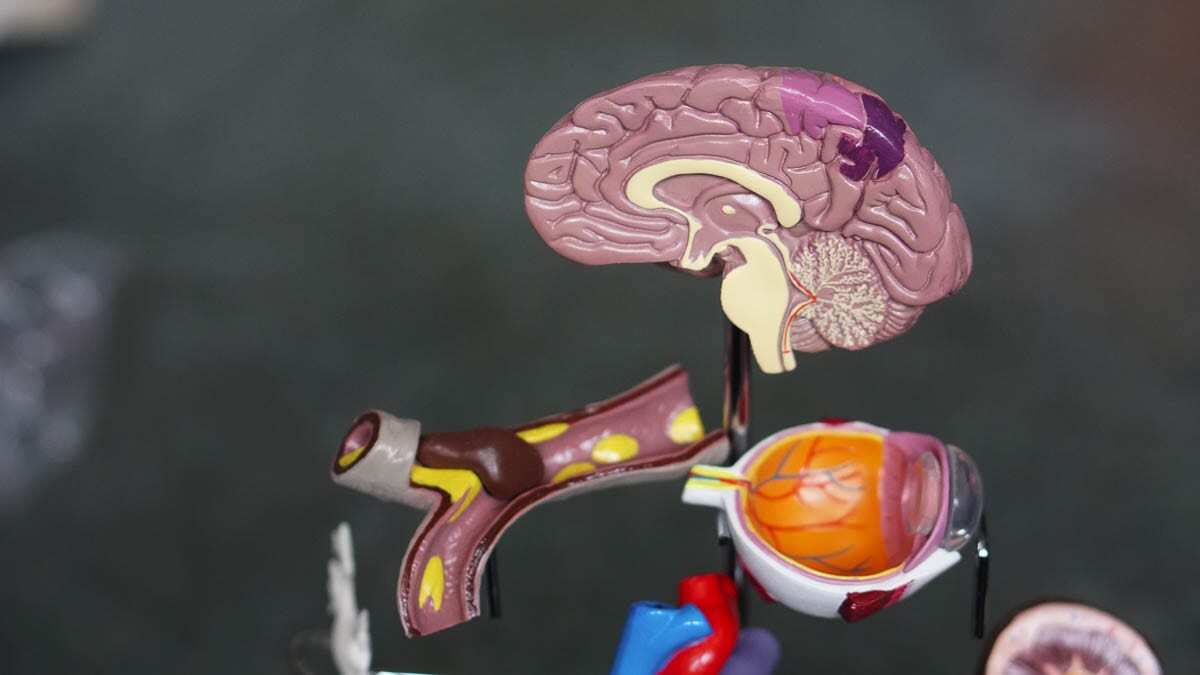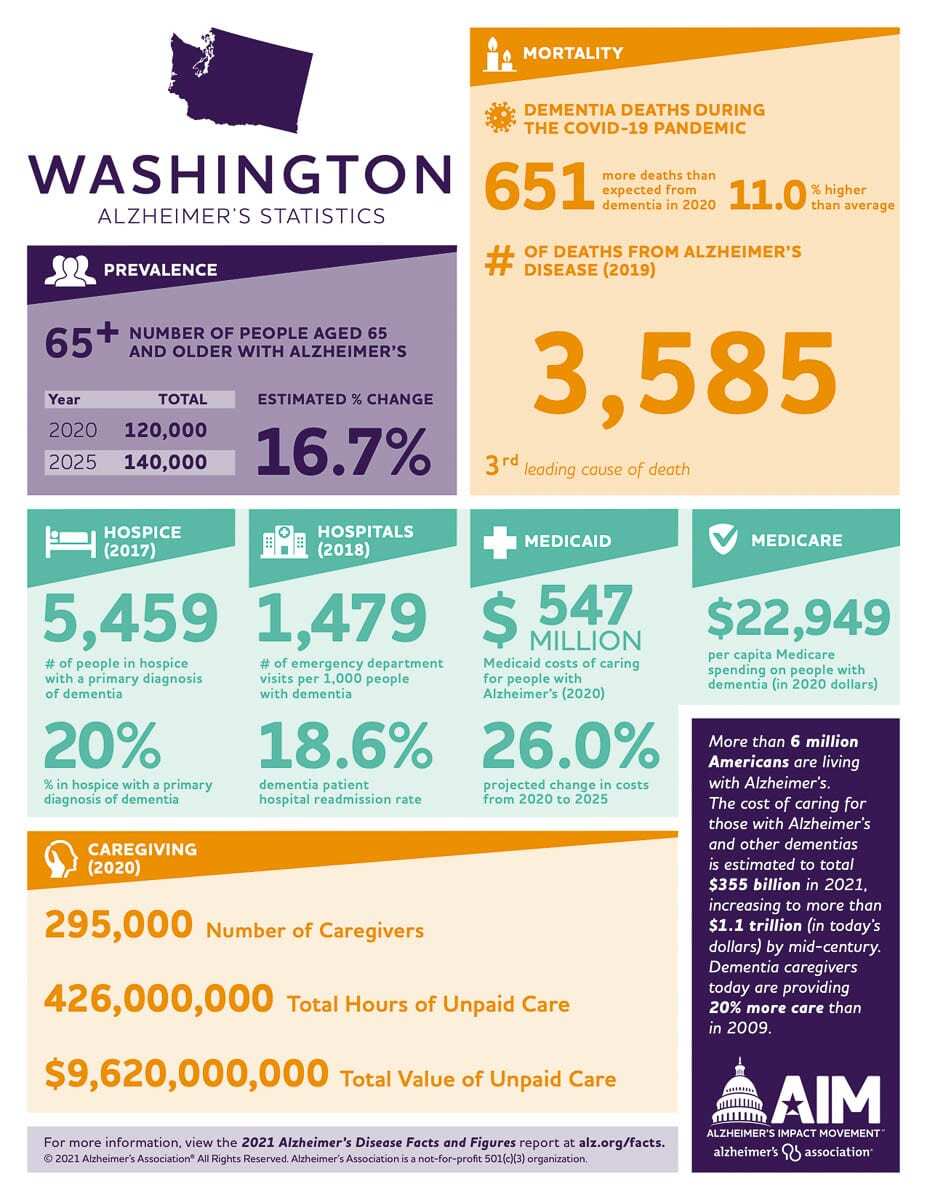Disease that kills one in three seniors has risen in occurrence 145 percent since 2000
CLARK COUNTY — Alzheimer’s disease continues to grow across the United States and the world, and like many health crises, it affects certain populations worse than others. But it doesn’t have to.

The Alzheimer’s Association is constantly working to compile the most recent information on research, care advice and public surveys. Locally, the Oregon and Southwest Washington Chapter has documented startling numbers in the Pacific Northwest of Alzheimer’s patients and caregivers.
The disease that kills more Americans than Breast Cancer and Prostate Cancer combined, has taken over 4,000 Washingtonians lives since 2019. It is estimated that close to 300,000 people are caregivers to a Alzheimer’s or dementia patient in Washington, and provided over $9.6 billion in unpaid care in 2020.
“The 2021 Facts and Figures report illustrates that Alzheimer’s disease and other dementias continue to be a growing burden for families across the Pacific Northwest,” said Heidi Rowell, program director of the Alzheimer’s Association Oregon & Southwest Washington Chapter. “Now more than ever, we must provide critical care and support services to our community, accelerating new treatments, preventions and, ultimately, a cure.”
The chapter has helped complete and disseminate a national survey commissioned by the association detailing disparities inside the already staggering numbers of patients and caregivers.

Of the nearly 2,000 minorities surveyed, 50 percent of black patients and a third of latino patients reported experiences with discrimation while seeking healthcare for their dementia diagnosis.
“We want to reach out to people who are part of those communities, and get them to help us share resources with folks,” Rowell said. “Because people are going to listen to someone in their own community, no matter what that community is, before they’re going to listen to an outsider.”
Combined with national evidence that the COVID-19 illness disproportionately affects communities of color due to a number of factors, the association is taking the survey findings seriously, as they try to find additional ways to bridge gaps.
Since the start of the pandemic, Alzheimer’s cases have increased by 16 percent nationally, and are 11 percent higher than average in Washington state. Numbers like these are collected with the help of each association chapter at the start of a new year, in the organization’s annual-themed report.
“If you’re already in a vulnerable position, it’s already difficult for people as they’re trying to navigate a diagnosis of Alzheimer’s or another dementia,” Rowell said. “Then to add discrimination on top of that, it’s just really, really difficult for folks.”
In addition to potential issues with access, many minorities surveyed also said their poor experiences would prevent them from volunteering for clinical trials critical to the cure-finding process.
According to the association, the most common reason cited for not participating in clinical trials among all racial/ethnic groups is not wanting to be a “guinea pig.” This sentiment was strong among 69 percent Black Americans, and almost half of Black Americans worry that treatments might cause sickness. They are also twice as likely as other groups to say they “don’t trust medical research,” according to the survey.
“Despite ongoing efforts to address health and health care disparities in Alzheimer’s and dementia care, survey results show there is still a lot of work to be done,” Carl V. Hill, Ph.D., MPH. chief diversity, equity and inclusion officer of the association, said in a release. “Clearly, discrimination, lack of diversity among health care professionals and mistrust in medical research create significant barriers to care and demand the country’s full attention.”
The association helps find people for trials through TrialMatch clinical studies matching service. The service is the number one way that new treatments are confirmed as helpful for patients. Contrary to what science fiction says, trials like those found through TrialMatch are approved and monitored by regulatory agencies, and vetted through strenuous peer reviews.
If you would like to learn more about cure research, volunteer for a clinical trial or learn more about the Alzheimer’s Association, visit them online at their website. You do not need to be diagnosed with Alzheimer’s or dementia to help in a clinical trial.
Some information provided by the Oregon and Southwest Washington Alzheimer’s Association




